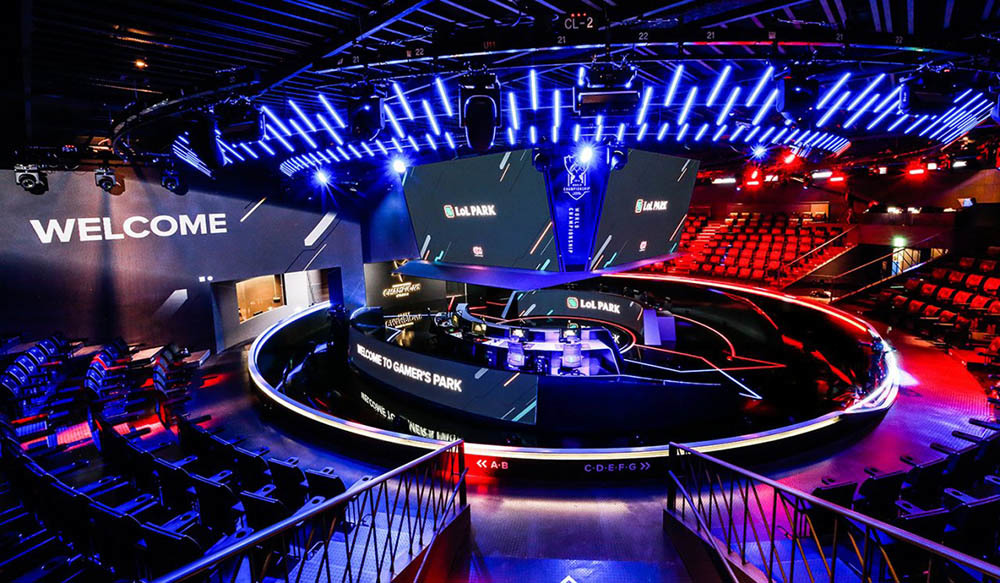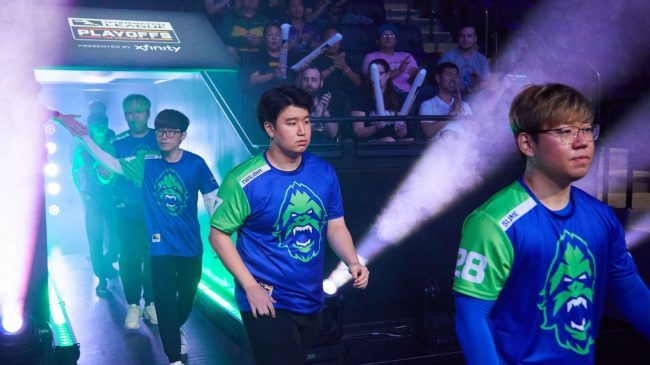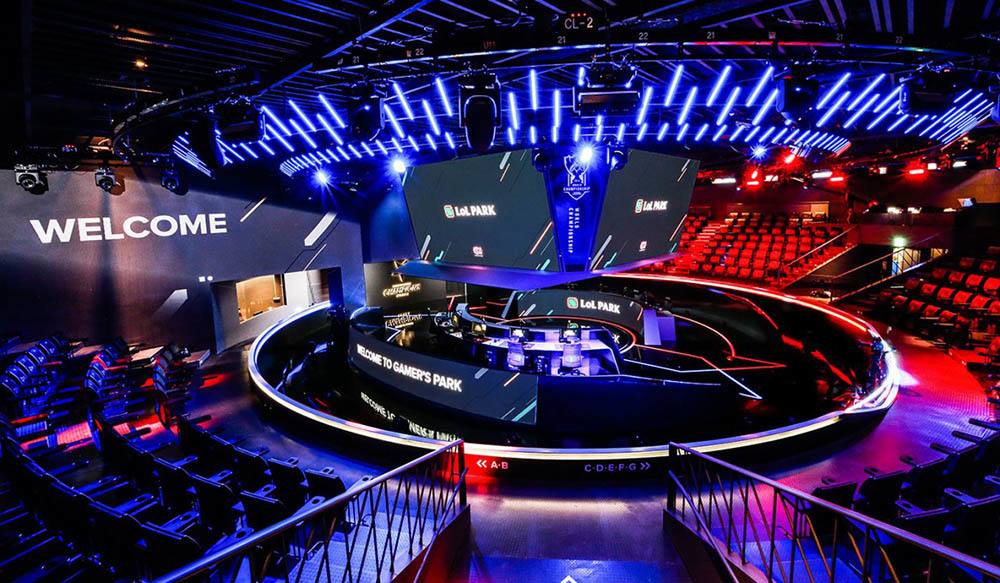
With live sports going offline during the COVID-19 pandemic, esports has taken the global center stage. Competitive gaming has generally been a popular topic of conversation in the news, from reports of motorsports moving to virtual race tracks, to predictions that esports will grow by unprecedented leaps and bounds during this period of time. However, it's important to be cautious because lockdowns are definitely not only fun and games for the industry. It's very likely that COVID-19 will hurt esports, too, and here are a few reasons why.

Loss of live event revenue
Since the beginning of 2020, tournaments have had to adjust their schedules dramatically. Some ongoing events, like the Overwatch League and Riot’s League of Legends regional leagues, have moved to empty arena setups in an effort to replicate live esports experiences online. However, other events have been canceled completely or moved to an undetermined date and time (the most notable example being Blizzcon 2020). One of the biggest esports event casualties is undoubtedly The International, which has been delayed until at least 2021. Since TI usually sets and breaks prize pool and revenue records, this will have a potentially bruising impact on esports as a whole and a crippling hit to the Dota 2 esports scene that relies on TI as a focal point.
In the United States, two esports companies filed for Paycheck Protech Program (PPP) loans in response to the COVID-19 crisis. The Washington Post debated whether or not it was “right” for them to take nearly $1 million each from the government. Morality aside, it’s likely that both Allied Esports and Super League Gaming expected to see themselves falling into the red due to a lack of live esports events and filed for the loans to respond to their projected need.
Live esports events provide income in ways that are very similar to traditional sporting events and music events. Merchandise and tickets tend to provide a good chunk of the revenue for esports companies and their production partners. A recent projection by market research firm Newzoo predicts that income from the sales of merchandise and tickets will fall from US$121.7 million to US$106.5 million.
When events resume, it’s also likely that seating arrangements and the very nature of the live experience will change. More resources will go into cleaning and setting up socially distant seating, thereby reducing the number of people allowed in the same place at the same time. This will result in budget shortfalls, forcing economic creativity upon esports organizers.
Loss of sponsorship and media rights revenue
Tangential to the loss of live event revenue tied to ticket and merchandise sales, organizers will lose revenue from sponsorship and media rights as well. Newzoo revised its media rights and sponsorship forecasts for esports in 2020 in the same report, projecting downward trends from US$185.4 million to $176.2 million and $636.9 million to $614.9 million USD, respectively.
With the coronavirus outbreak impacting countless aspects of everyone's day-to-day lives, it's also set to have an influence on most business sectors. Thus, we're carefully monitoring its impact on #games and #esports - here's our first thoughtshttps://t.co/5sWPU5KgB4
— Newzoo (@NewzooHQ) March 25, 2020
If live events are cancelled, there is nothing to sponsor and no media rights to purchase. While events can be streamed, investors may not see the same value in an online tournament as they would one that comes coupled with on-the-floor engagement as well. Streaming revenue is projected to increase and make up for the shortfall in revenue for some organizations, but others that rely more on their live event output for future growth will suffer.

Travel complications for players and fans
International travel has been affected by COVID-19, restricting players to their domestic regions for the time being. One of the biggest stories coming out of the pandemic is the complete dissolution of the Vancouver Titans’ roster last month. Most of the former roster were Korean nationals; ultimately, the organization decided it would be wiser to release them so the players could return home while recruiting North American players to fill in for the rest of the season. Since then, many of the former Titans players have reportedly been unable to join other North American teams due to visa restrictions.
Expect visa issues to persist while countries enact different measures to prevent a second wave of infections in their jurisdictions. This will mean that even if live events are cleared in one area, not all teams or players will be able to attend if they aren’t in the same region or hold a visa that allows them to travel there. This will also affect fans who travel to events outside of their region. Esports thrives on being a truly international competitive outlet, and COVID-19 putting a damper on globalization will hurt it for at least a temporary period.

Decrease in consumer disposable income
The biggest X factor for any business during COVID-19 recovery is consumer income. The unemployment rate in the United States alone has hit a staggering number, resulting in a tightening of belts across the country. With social security benefits only covering a certain amount for the unemployed, American money will flow less readily into the esports market. This applies to the economies of other countries as well, but with many developers located in North America, it is of a particular concern there.
Disposable income will likely continue to flow into gaming, but projections seem to favor mobile games instead of PC games for the time being, if the recent Tencent first-quarter analysis is any predictor. According to a report by the Motley Fool:
Tencent's smartphone gaming revenue rose 64% annually during the quarter, but its PC gaming revenue fell 15% due to the weakness of DnF and the closures of internet cafes during the pandemic.
Mobile games aren't quite as popular in European and North American markets as they are in Asian markets, but mobile gaming tends to be cheaper than PC options, making it a more sensible spend for cash-conscious consumers.
It is very likely that empty pockets in the next few quarters as a result of the pandemic will restrict consumers from attending live events and purchasing new equipment or peripherals to complement their favorite esports titles. Since many sponsors come from endemic sources, this will hurt the bottom line of some companies in the industry.
The future is not bleak, but it is worrisome
While die-hard esports enthusiasts are presumably fine with online spectator experiences, the future of esports as an industry has largely been pinned upon the growth of live event circuits like the Overwatch League, the Call of Duty League, and others. Newly-built city-based spectator arenas will suffer immediately from lack of use, and future events organized around their availability will continue to be postponed until localities deem it safe to resume. It will be a trying time for many employees tied to these industries and a disappointment to fans overall.
The future is not bleak, but it is worrisome. Streaming revenue and mobile ad revenue will likely grow, and new dynamic solutions to old problems will be born of this pandemic period. Esports is poised to be less affected than other industries, but it's important to know the areas that will take a hit in order to make accommodations.
For now, it's important to be reasonable about your expectations for esports during the coronavirus pandemic, and support your favorite organizers and teams if you want them to continue performing in the future.






























